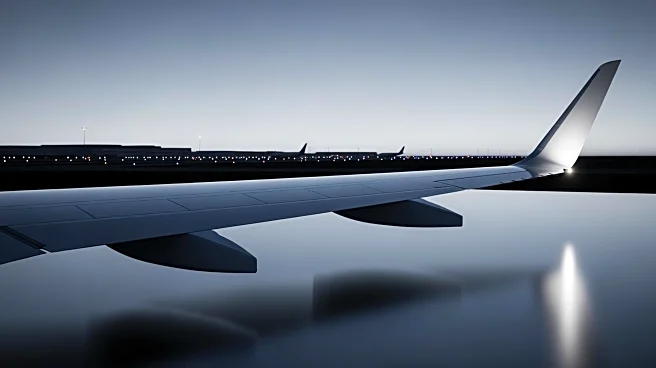What's Happening?
UPS and FedEx have temporarily grounded their fleets of McDonnell Douglas MD-11 cargo planes following a fatal crash in Louisville, Kentucky. The Federal Aviation Administration (FAA) has mandated an investigation
into these aircraft before they can resume operations. The incident involved the detachment of the left engine and a subsequent fire on the wing during takeoff. Boeing, which now owns the MD-11 program, has recommended suspending operations for further engineering analysis. This decision affects the logistics operations of both UPS and FedEx, as they rely heavily on these aircraft for cargo transport.
Why It's Important?
The grounding of MD-11 planes by major logistics companies like UPS and FedEx could significantly impact the supply chain and delivery schedules across the United States. These aircraft are integral to the transportation of goods, and their temporary suspension may lead to delays and increased operational costs. The FAA's investigation is crucial to ensure the safety of these planes, which are widely used in cargo transport. The incident underscores the importance of rigorous safety checks and engineering assessments in aviation, potentially prompting stricter regulations and oversight in the industry.
What's Next?
The FAA's investigation will determine the safety and airworthiness of the MD-11 planes, which could lead to further regulatory actions or modifications required by Boeing. UPS and FedEx will need to adjust their logistics strategies to mitigate the impact of the grounding, possibly relying on alternative aircraft or transportation methods. Stakeholders in the aviation and logistics sectors will be closely monitoring the situation, as any prolonged suspension could have broader implications for global supply chains.
Beyond the Headlines
The incident raises questions about the long-term viability and safety of older aircraft models like the MD-11. As aviation technology advances, companies may need to invest in newer, more reliable aircraft to prevent similar occurrences. This situation also highlights the critical role of engineering and safety protocols in maintaining operational integrity and public trust in air transport.










